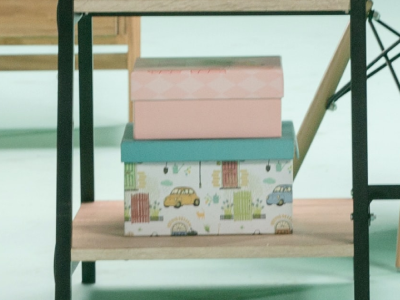
Feng Shui for the Office
Feng shui is a traditional Chinese practice that has become increasingly popular in Western culture over the last decade.
The literal translation for feng shui is “wind” and “water.” Its philosophy is to harness energy forces (chi) and balance natural elements (fire, earth, metal, water, and wood) to create a harmonious environment for the individuals in it. The goal of a room design and layout is to allow chi to flow smoothly inside the space. According to believers, good feng shui can bring good fortune, health, and luck to its inhabitants. Surprisingly enough, sometimes it is also very practical and can results in the improved use of a space or object.
Growing up, I learned about feng shui from my Chinese/Vietnamese family and relatives. No one was an expert on the subject, but they all knew the steadfast rules and basic principles. Unless you have the means to construct your own home or office, it’s difficult to be “feng shui-perfect.” My rule of thumb for every home or office I’ve ever had is to incorporate a few good practices that are both simple and provide a functional benefit. If it brings me good luck, then that’s a bonus.
Here are five tips to help you rein in some positive energy for your office.


1. Place your desk in the command position
The main piece of furniture in any room, should be placed in a location that allows you to have a clear view of the entrance. This is known as the “command” or “power” position. Having a good visual of your room and being able to see anyone or anything gives you more control of your environment–which symbolizes taking control of your career.
An effective command position should also meet the following criteria:
- Be located in the area farthest from the door, allowing you to have the widest view of your room
- Not be in a direct path with the door because it makes you vulnerable to negative or overabundance of energy rushing in
- There should be a wall behind the desk and you (this represents having a strong backing or support)
Luckily, there is usually a “remedy” to help offset poor feng shui. If you cannot achieve a proper command position, then place a mirror on your desk or wall so you can see the door easily. Adding a desk lamp can also help as light creates positive energy (see more on lighting below).
Tip: I apply this idea to other rooms in the house—it is especially important for the positioning of a bed. I even apply this in settings outside of my home or office. Whether in a conference room or restaurant, I try to pick the seat that puts me in the optimal position.

2. Remove clutter
Avoiding clutter has many obvious functional benefits; you can easily find the things you need when you them, have a more organized-looking workspace, etc. When it comes to feng shui, clutter creates blockages and prohibits chi from flowing freely within a space. Stagnant energy can prevent you from moving forward in your career, create mental blocks, or keep good chi from reaching you. Clutter also creates negative energy that can increase stress and lower productivity. There is also scientific research to help back this up: The Unbearable Heaviness of Clutter.

3. Add a living plant to your space
Plants represent wood. Bringing this element into your office is believed to cultivate growth, bring prosperity, and create harmony. It also nourishes the energy in a room by activating the positive and eliminating the negative.
However, it is important to avoid unhealthy or spiky plants. In feng shui, you should avoid placing sharp, pointy objects around you because it can inflict harmful chi onto its inhabitants.
Fun Fact: A few years ago, I purchased a money tree for my cubicle when I was in line for a promotion. The plant flourished, and I got my promotion within a month. It was the only plant that survived more than a month under my care, lasting for almost two years.

4. Use good lighting
Lighting is often used in feng shui to remedy problematic areas. Like plants, it also attracts positive energy and diminishes the negative. It represents the fire element and is also the strongest source of yang energy. Yang energy is strong and vibrant, which is excellent for bolstering creativity and increasing productivity.
Not all light created equal. Natural lighting is best because its energy nourishes the room and its inhabitants. When natural lighting is limited, use full-spectrum light bulbs because they simulate outdoor lighting the most. Avoid fluorescent light because it is harsh and creates negative energy. The negative impacts of fluorescents extends beyond feng shui though–they have lonh been scrutinized for their adverse effects on our health.
It is important to have ample lighting but not go overboard. Remember that good feng shui is require balance, and in this case, the balance of yin (darkness) and yang (light).

5. Use artwork to amplify your space
Artwork is also another item in the feng shui toolkit used to promote good energy and remedy issues. When used in the office, they should motivate you and represent the goals you want to achieve. Here are some commonly used images and what they symbolize for the Chinese:
Mountains: Support or backing (typically place on the wall behind the desk)
Water: Prosperity, the flow of income
Fish: Prosperity, abundance
Rooster: Deflects bad energy
You can also put up quotes that inspire you and bring positive vibes.
Regardless of whether you choose to incorporate any of these feng shui ideas, the most important thing is that you do what makes you comfortable and happy in your space. Have fun!
More on the Blog
Tips for Salesforce Marketing Cloud Certifications
A Salesforce certification not only demonstrates your knowledge, but it also helps you stand out in a competitive job...
A Lesson Learned From Michelle Kwan
This International Women's Day, I want to celebrate my childhood hero, Michelle Kwan. I had the pleasure of hearing...
New Year, New Resolutions
The new year brings hope for greater things. It's been a few years since I've made new years resolutions....



